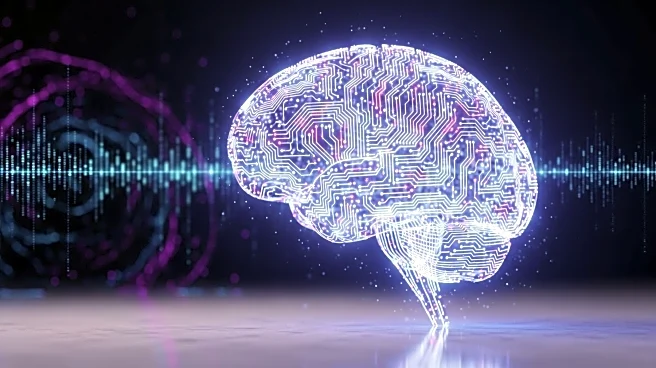What's Happening?
Mercer, a business of Marsh McLennan, has announced the launch of Workforce Insights, an AI-powered platform designed to provide organizations and human resources practitioners with a comprehensive view of their talent landscape and workforce dynamics. This platform allows users to compare metrics against industry standards and identify new trends across more than 100 countries and 20,000 organizations. Alongside Workforce Insights, Mercer is introducing Aida, an Artificial Intelligence Digital Assistant within the Talent All Access Portal. Aida supports HR decision-making by providing access to benchmarking data, compensation trends, and other global data sets. These tools enable HR teams to ask natural language questions and receive data-driven responses, enhancing their ability to make informed decisions.
Why It's Important?
The introduction of AI-driven platforms like Workforce Insights and Aida represents a significant shift in how organizations manage and utilize their workforce data. By leveraging AI, Mercer aims to empower HR leaders to make faster, more informed decisions, ultimately enhancing strategic value and efficiency. This development is crucial as it aligns with the growing trend of data-driven decision-making in HR, where Chief Human Resources Officers (CHROs) are increasingly relying on data to guide their strategies and secure funding for projects. The integration of AI in HR practices could lead to more effective talent management, improved employee engagement, and optimized workforce planning, benefiting both organizations and their employees.
What's Next?
As Mercer continues to integrate AI across its solutions, organizations can expect further advancements in AI-enabled workforce management. This may include more sophisticated tools for talent reskilling, work redesign, and the development of flexible workforce models. The adoption of these AI capabilities could prompt other companies to follow suit, potentially leading to widespread changes in HR practices across various industries. Stakeholders such as business leaders and HR professionals will likely monitor these developments closely to assess their impact on organizational performance and employee satisfaction.
Beyond the Headlines
The deployment of AI in HR raises important ethical and legal considerations, particularly regarding data privacy and the potential for bias in AI algorithms. Organizations must ensure that their AI systems are transparent and that they adhere to ethical guidelines to prevent discrimination and protect employee data. Additionally, the shift towards AI-driven HR practices may require a cultural change within organizations, as employees and leaders adapt to new technologies and ways of working. Long-term, this could lead to a more agile and responsive workforce, better equipped to meet the challenges of a rapidly changing business environment.









